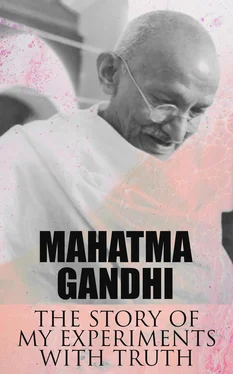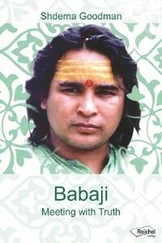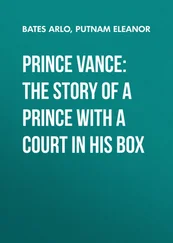My experiments in the political field are now known, not only to India, but to a certain extent to the ‘ civilised ’ world. For me, they have not much value; and the title of Mahatma ’ that they have won for me has, therefore, even less. Often the title has deeply pained me; and there is not a moment I can recall when it may be said to have tickled me. But I should certainly like to narrate my experiments in the spiritual field which are known only to myself, and from which I have derived such power as I possess for working in the political field. If the experiments are really spiritual, then there can be no room for self-praise. They can only add to my humility. The more I reflect and look back on the past, the more vividly do I feel my limitations. What I want to achieve, — what I have been striving and pining to achieve these thirty years, — is self-realisation, to see God face to face, to attain Moksha. I live and move and have my being in pursuit of this goal. All that I do by way of speaking and writing, and all my ventures in the political field, are directed to this same end. But as I have all along believed that what is possible for one is possible for all, my experiments have not been conducted in the closet, but in the open; and I do not think that this fact detracts from their spiritual value. There are some things which are known only to oneself and one’s Maker. These are clearly' incommunicable. The experiments I am about to relate are not such. But they are spiritual, or rather moral; for the essence of religion is morality. Only those matters of religion that can be comprehended as much by children as by older people, will be included in this story. If I can narrate them in a dispassionate and humble spirit many other experimenters will find in them provision for their onward march. Far be it from me to claim any degree of perfection for these experiments. I claim for them nothing more than does a scientist, who, though he conducts his experiments with the utmost accuracy,, forethought and minuteness, never claims any finality about his conclusions, but keeps an open mind regarding them. I have gone through deep self-introspectionr searched myself through and through, and examined and analysed every psychological situation. Yet I am far from claiming any finality, or infallibility about my conclusions. One claim I do indeed make and it is this. For me they appear to be absolutely correct, and seem for the time being to be final. For if they were not, I should base no action on them. But at every step I have carried out the process of acceptance or rejection and acted accordingly. And so long as my acts satisfy my reason and my heart, I must firmly adhere to my original conclusions. If I had only to discuss academic principles, I should clearly not attempt an autobiography. But my purpose being to give an account of various practical applications of these principles, I have given the chapters I propose to write the title of The Story of my Experiments with Truth. These will of course include experiments with non-violence, celibacy and other principles of conduct believed to be distinct from truth. But for me, truth is the, sovereign principle, which includes numerous other principles. This truth is not only truthfulness in word, but truthfulness in thought also, and not only the relative truth of our conception, but the Absolute Truth, the Eternal Principle, that is God. There are innumerable definitions of God, because His manifestations are innumerable. They overwhelm me with wonder and awe and for a moment stun me. But I worship God as Truth only. I have not yet found Him, but I am seeking after Him. I am prepared to sacrifice the things dearest to me in pursuit of this quest. Even if the sacrifice demanded be my very life I hope I may be prepared to give it. But as long as I have not realised this Absolute Truth, so long must I hold by the relative truth as I have conceived it. That relative truth must, meanwhile, be my beacon, my shield and buckler. Though this path is strait and narrow and sharp as the razor’s edge, for me it has been the quickest and easiest. Even my Himalayan blunders have seemed trifling to me because I have kept strictly to this path. For the path has saved me from coming to grief, and I have gone forward according to my light. Often in my progress I have had faint glimpses of the Absolute Truth, Gfod, and daily the conviction is growing upon me that He alone is real and all else is unreal. Let those, who wish, realise how the conviction has grown upon me ; let them share my experiments and share also my conviction if they can. The further conviction has been growing upon me that whatever is possible for me is possible even for a child, and I have sound reasons for saying so. The instruments for the quest of truth are as simple as they are difficult. They may appear quite impossible to an arrogant person, and quite possible to an innocent child. The seeker after truth should be humbler than the dust. The world crushes the dust under its feet, but the seeker after truth should so humble himself that even the dust could crush him. Only then, and not till then, will he have a glimpse of truth. The dialogue between Vasishtha and Yishvamitra makes this abundantly clear. Christianity and Islam also amply bear it out. If anything that I write in these pages may strike the reader as being touched with pride, then he must take it that there is something wrong with my quest, and that my glimpses are no more than mirage. Let hundreds like me perish, but let truth prevail. Let us not reduce the standard of truth even by a hairs breadth for judging erring mortals like myself. I hope and pray that no one will regard the advice interspersed in the following chapters as authoritative. The experiments narrated should be regarded as illustrations, in the light of which every one may carry on his own experiments according to his own inclination and capacity. I trust that to this limited extent, the illustrations will be really helpful; because I am not going either to conceal or understate any ugly things that must be told. I hope to acquaint the reader fully with all my faults and errors. My purpose is to describe experiments in the science of Satyagraha, not to say how good I am. In judging myself I shall try to be as harsh as truth, as I want others also to be. Measuring myself by that standard I must exclaim with Surdas : Where is there a wretch So wicked, and loathsome as I ? I have forsaken My Maker, So faithless have I been. For it is an unbroken torture to me that I am still so far from Him, who, as I fully know, governs every breath of my life, and whose offspring I am. I know that it is the evil passions within that keep me so far from Him, and yet I cannot get away from them. But I must close. I can only take up the actual story in the next chapter.
M. K. GANDHI
The Ashram, Sabarmati, 26th November, 1925.
Table of Contents
Table of Contents
The Gandhis belong to the Bania caste and seem to have been originally grocers. But for three generations, from my grandfather, they have been Prime Ministers in several Kathiawad States. Uttamchand Gandhi, alias Ota Gandhi, my grandfather, must have been a man of principle. State intrigues compelled him to leave Porbandar, where he was Diwan, and to seek refuge in Junagadh. There he saluted the Nawab with the left hand. Someone, noticing the apparent discourtesy, asked for an explanation, which was given thus: ‘The right hand is already pledged to Porbandar.’
Ota Gandhi married a second time, having lost his first wife. He had four sons by his first wife and two by his second wife. I do not think that in my childhood I ever felt or knew that these sons of Ota Gandhi were not all of the same mother. The fifth of these six brothers was Karamchand Gandhi, alias Kaba Gandhi, and the sixth was Tulsidas Gandhi. Both these brothers were Prime Ministers in Porbandar, one after the other. Kaba Gandhi was my father. He was a member of the Rajasthanik Court. It is now extinct, but in those days it was a very influential body for settling disputes between the chiefs and their fellow clansmen. He was for some time Prime Minister in Rajkot and then in Vankaner. He was a pensioner of the Rajkot State when he died.
Читать дальше












